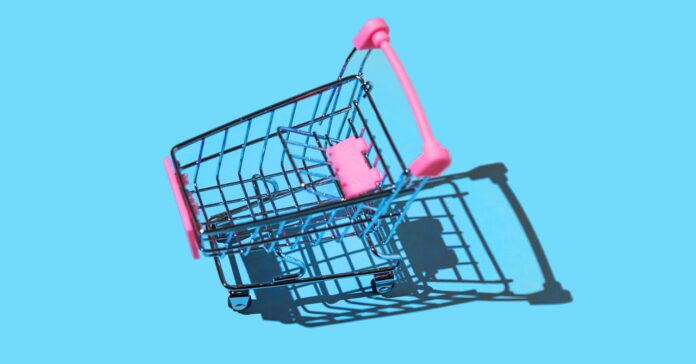The days of buying ultracheap stuff on TikTok Shop may be winding down.
Starting today, the fees TikTok charges sellers increase from 2 percent to 6 percent of the price of each order. They will creep up to 8 percent in July. The changes may mark a crucial moment for people who shop on TikTok and for the platform itself, potentially forcing up prices and testing shopper’s loyalty to the social app’s ecommerce play.
TikTok Shop launched in the US in September with strikingly low prices compared to other online stores, thanks to its subsidies to sellers and shoppers. Influencers and entrepreneurs embraced the opportunity: TikTok saw a surge of sellers that outpaced growth in vendors at competitors like Shopify and Amazon, according to a March report from SimilarWeb, which tracks web traffic. But from the beginning TikTok Shop has hosted deals that appear too good to be true, such as deeply discounted—and possibly counterfeit—snail mucin skin care products and Stanley tumblers, as well as jewelry, socks, and other odds and ends for less than $1.
After a successful holiday shopping season, TikTok Shop’s fee increases see the platform trying to prove it can become a sustainable, habit-forming mainstay in ecommerce. “The true test for [TikTok Shop’s] longevity and its sustainability will be as these incentives start to roll back,” says Jasmine Enberg, principal analyst for social media at Insider Intelligence, a market research firm. “A lot of the sellers that have found success on TikTok Shop are smaller businesses that really benefited from the incentives.”
If TikTok Shop continues to increase its fees, those sellers may struggle, Enberg predicts. TikTok did not provide a comment on the fee changes for this story.
TikTok Shop’s seller fees are still lower than many fees for Amazon sellers, which vary by type of product. The lowest are 5 percent, for low-cost apparel, but they generally range between 8 and 20 percent for jewelry and fine art. But TikTok Shop is a different beast than the everything store. While many people turn to Amazon to search for necessities, on TikTok Shop buyers often find products they didn’t know they wanted through influencers and algorithmic discovery—more similar to Temu or Shein.
TikTok sellers face the additional challenge of needing their pitches to stand out from the parade of loud, viral video content the app services up. Influencers and brands selling through TikTok Shop have to convince people scrolling for entertainment to stop and shop. People are often “in the app to do something completely different,” says Michael Yamartino, an ecommerce expert and CEO of Route, a platform that helps brands ship orders.
Sellers that respond to higher fees by raising prices may discover that they’ve lost a key ingredient needed for success in TikTok’s ecommerce model. To get TikTok users’ attention and items into their virtual carts, “you have to be loud,” Yamartino says. “You have to be shockingly cheap, shockingly engaging, and super on trend.”
TikTok Shop does still offer subsidies to sellers. Shoppers don’t pay shipping on orders of $20 or more. Last week, TikTok was advertising a Spring Sale in the app’s Shop tab, offering discounts up to 30 percent (a combination of TikTok subsidies and sellers slashing prices) and free shipping on some items. Among them: a Duolingo owl head covering, 10 pairs of socks for $3.80, and a set of stuffed capybara plush dolls.
TikTok’s fee changes could be most challenging for small-time or individual sellers that embraced its shopping platform, some hawking cheap or questionable items. The flood of random, kitschy and trendy products has eclipsed some more established retailers and bigger brands.
Paul Jauregui, who cofounded BK Beauty with his wife Lisa, says their company has seen massive success since they started also selling their products on TikTok Shop, selling more than 168,000 makeup brushes and cosmetics on the app. It’s the sort of product primed for TikTok, where beauty content is huge and influencers can easily showcase makeup tools. “When you hit this trend, you’re just carried on this wave that takes you very high quickly,” Jauregui says.
Jauregui still believes in the power of TikTok. For now, BK Beauty will likely absorb some of the additional costs, but the fee changes may affect how the company advertises on the platform or engages in TikTok Shop’s flash sales, he says. “The subsidies have started to fade. We’re still leaning in.”
Source : Wired
















